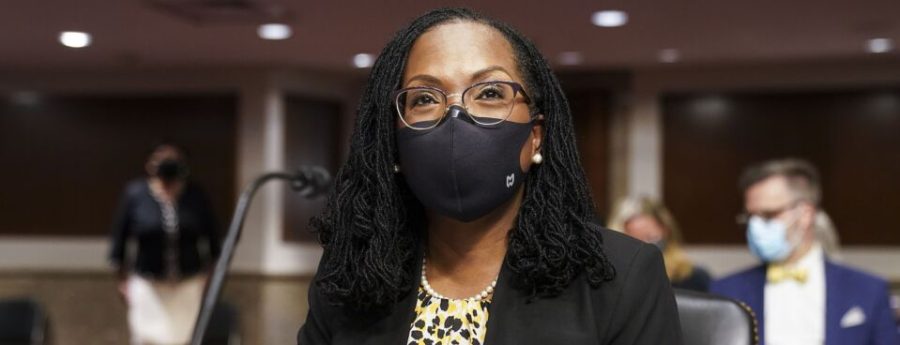Ketanji Brown Jackson Confirmed to Supreme Court
Photo courtesy of Bloomberg Law
Ketanji Brown Jackson becomes the first black woman to ever be confirmed to the Supreme Court of the United States.
April 7, 2022
On April 7, the US Senate voted to confirm Kentaji Brown Jackson as the newest addition to the Supreme Court of the United States. Jackson broke the glass ceiling as the first black woman ever to be nominated and confirmed to the court. The vote was made bipartisan by the votes of three Republican senators: Mitt Romney (UT), Susan Collins (ME), and Lisa Murkowski (AK). The votes against confirmation by all other Republicans, however, show the growing partisanship within all facets of American government: including the judiciary, which was originally framed to be free from political intervention.
Jackson attended Harvard University for both undergraduate studies as well as her law school training. Jackson began her work in the federal government under the Obama administration, where she was the Vice Chair for the United States Sentencing Commission. After that she worked as a judge for the district court as well as the court of appeals in Washington DC. After the announcement that Supreme Court Judge Stephen Breyer would be retiring, President Biden nominated Jackson.
The nomination process was long and arduous. Conservatives in the senate are comfortable with their majority in the court, and the accession of a liberal minded black woman had many worried for the future of the court’s political leanings. This concern showed itself as Senate Minority Leader Mitch McConnell (KY) commented during the closing remarks, “The soon to be justice can either satisfy her radical fan club, or help preserve the judiciary that the Americans need, but not both.”
While this may be the feelings of some republicans, senate democrats still rejoiced in their successful confirmation of Jackson. Historically, democrats have had bad luck in trying to confirm a new justice. Republicans blocked the confirmation of Merrick Garland at the end of President Obama’s administration. Despite all this, though, the Supreme Court maintains its conservative bias, but the addition of a new, progressive justice may shift this in the future.




